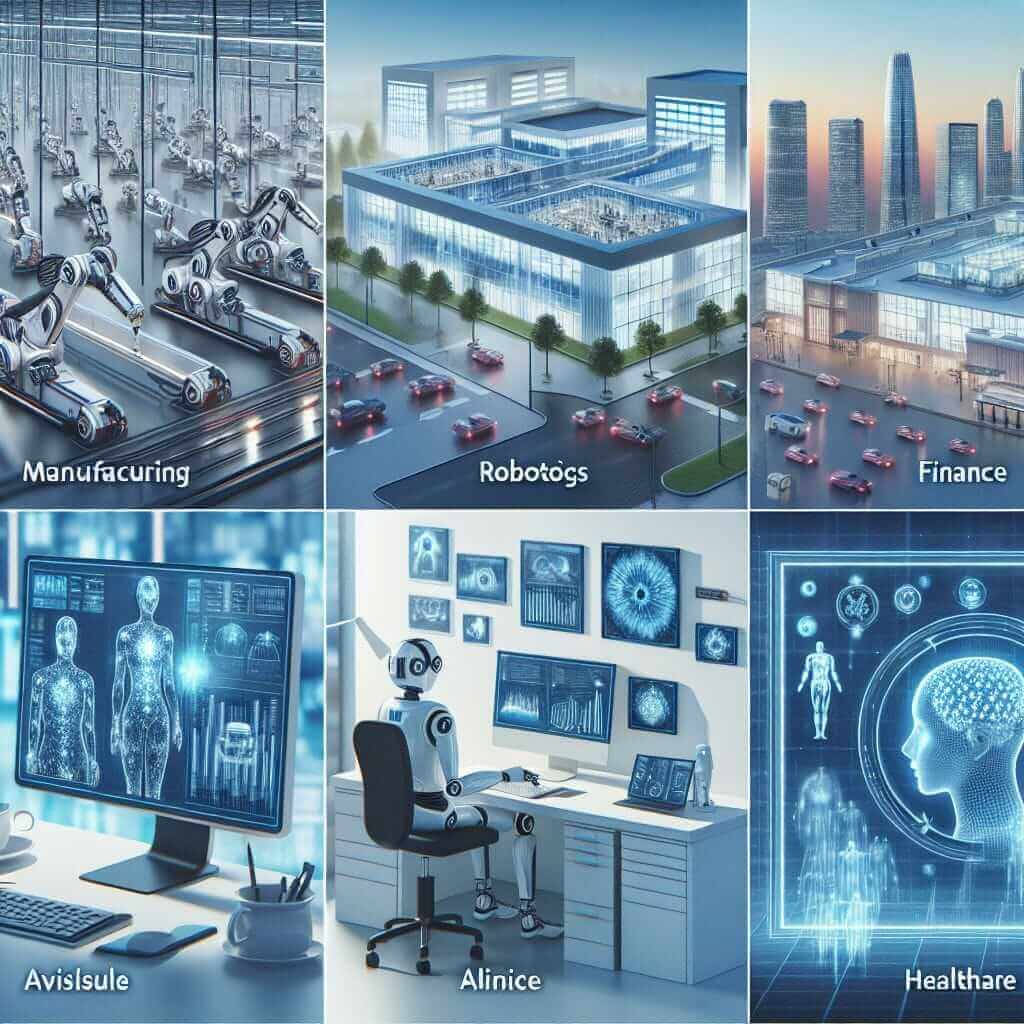The IELTS Reading test often includes texts about contemporary and pressing issues, one of which is the social implications of artificial intelligence (AI) on employment. AI’s influence on the workforce has been a recurrent topic in past exams due to its relevance and the rich vocabulary it offers. Given the rapid advancement of AI and its increasing impact on various industries, it’s highly probable that this theme could appear in future IELTS exams. This article will provide a reading practice test, questions, answer keys, vocabulary, grammar tips, and strategic advice aimed at mastering this topic.
Reading Passage
Reading Practice Test: AI and Employment
The Social Implications of Artificial Intelligence on Employment
Artificial intelligence (AI) is transforming the world of work. From automating routine tasks to driving advanced decision-making processes, AI is reshaping numerous industries. This transformation brings significant social implications, both positive and negative, affecting employment in profound ways.
AI’s ability to handle repetitive and mundane tasks means that certain jobs are becoming obsolete. For instance, manufacturing roles that involve assembly line work are increasingly performed by robots. This shift has led to concerns about job displacement and has spurred discussions on the need for upskilling and reskilling the workforce.
Moreover, AI is not only replacing blue-collar jobs but also venturing into areas traditionally dominated by white-collar professionals. AI systems are now capable of performing legal research, medical diagnoses, and even financial analysis. This expansion challenges the notion that only low-skilled jobs are at risk, highlighting the need for continuous learning and adaptability.

Nevertheless, AI also creates new opportunities. Technologies such as AI-powered diagnostics tools in healthcare not only enhance efficiency but also demand new skills, creating roles like AI trainers and AI ethicists. The emergence of these new job categories suggests that while AI may eliminate some jobs, it simultaneously generates new avenues for employment.
However, the transition is not seamless. There are significant disparities in how different sectors and socioeconomic groups are affected. For instance, regions heavily dependent on manufacturing may face higher unemployment rates compared to those with a robust tech infrastructure. Policymakers must therefore address these discrepancies to prevent socioeconomic inequality.
In conclusion, AI’s impact on employment is multifaceted. While it can displace certain jobs, it also holds the potential to create new opportunities and increase overall productivity. The key challenge lies in managing this transition, ensuring equitable access to new opportunities, and fostering an adaptable workforce capable of thriving in an AI-driven economy.
Questions
Multiple Choice
-
What is one major impact of AI on employment according to the passage?
a. Doubling the number of jobs in tech industries.
b. Automating routine tasks and making some jobs obsolete.
c. Reducing the overall need for workplaces.
d. Enhancing the dependency on traditional jobs. -
What does the passage suggest about AI’s effect on white-collar jobs?
a. White-collar jobs are entirely safe from AI displacement.
b. AI is only affecting low-skilled white-collar jobs.
c. AI is starting to replace some white-collar professionals.
d. AI has no significant impact on white-collar jobs yet.
Identifying Information (True/False/Not Given)
- AI is only replacing blue-collar jobs. (True/False/Not Given)
- Policymakers need to address inequalities caused by AI to prevent socioeconomic disparity. (True/False/Not Given)
Matching Headings
- Match the following headings to the corresponding paragraphs in the passage:
- a. The Role of Policymakers
- b. Challenges and Opportunities
- c. AI’s Impact on Different Sectors
- d. AI in the Workforce
Answer Keys
- b. Automating routine tasks and making some jobs obsolete.
- c. AI is starting to replace some white-collar professionals.
- False
- True
-
- Paragraph 1: d. AI in the Workforce
- Paragraph 2: b. Challenges and Opportunities
- Paragraph 3: b. Challenges and Opportunities
- Paragraph 4: c. AI’s Impact on Different Sectors
- Paragraph 5: a. The Role of Policymakers
Common Mistakes
Frequent Errors
- Overlooking key ideas like “continuous learning” and “upskilling”.
- Misinterpreting the social impact as purely negative without recognizing the creation of new job roles.
- Confusing the nuanced point that AI affects both blue-collar and white-collar jobs.
Vocabulary
- Reskill (v): /rɪˈskɪl/ – To learn new skills so that you can do a different job.
- Disparity (n): /dɪˈspærɪti/ – A great difference.
- Ethicist (n): /ˈɛθɪsɪst/ – A person specialized in or concerned with ethics.
Grammar
Reported Speech
- Example:
- Direct Speech: “AI is creating new job categories,” said the expert.
- Reported Speech: The expert said that AI was creating new job categories.
Advice for High IELTS Reading Scores
- Practice Regularly: Regular practice helps increase speed and comprehension.
- Expand Vocabulary: Focus on learning sector-specific terms relevant to AI and employment.
- Skill-Specific Training: Enhance abilities in skimming, scanning, and interpreting data fast.
- Understand the Question Types: Familiarize yourself with all types of questions in the IELTS Reading section.